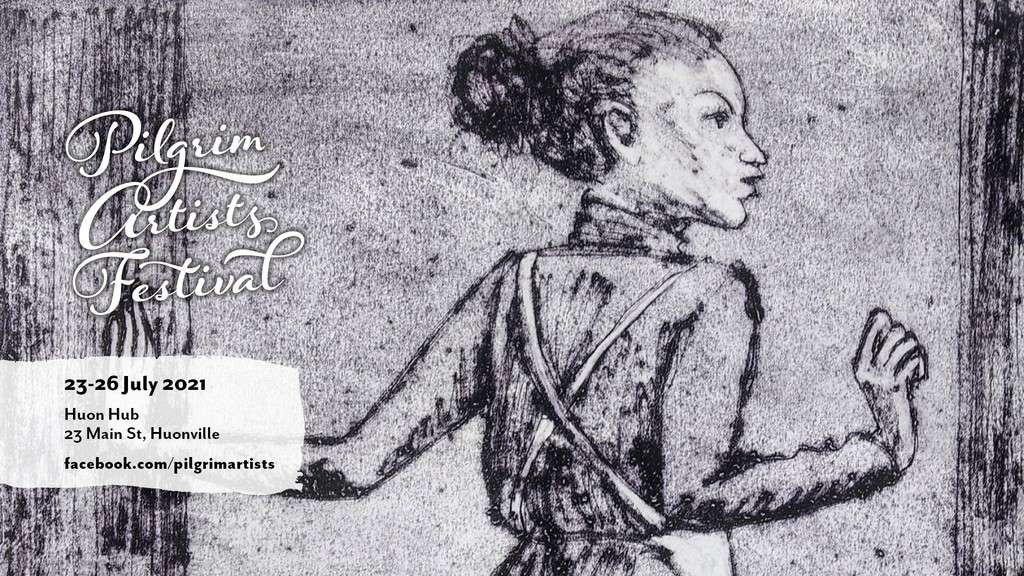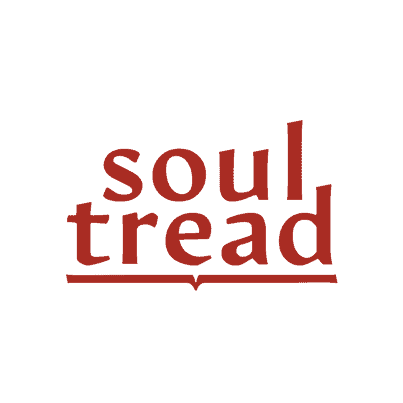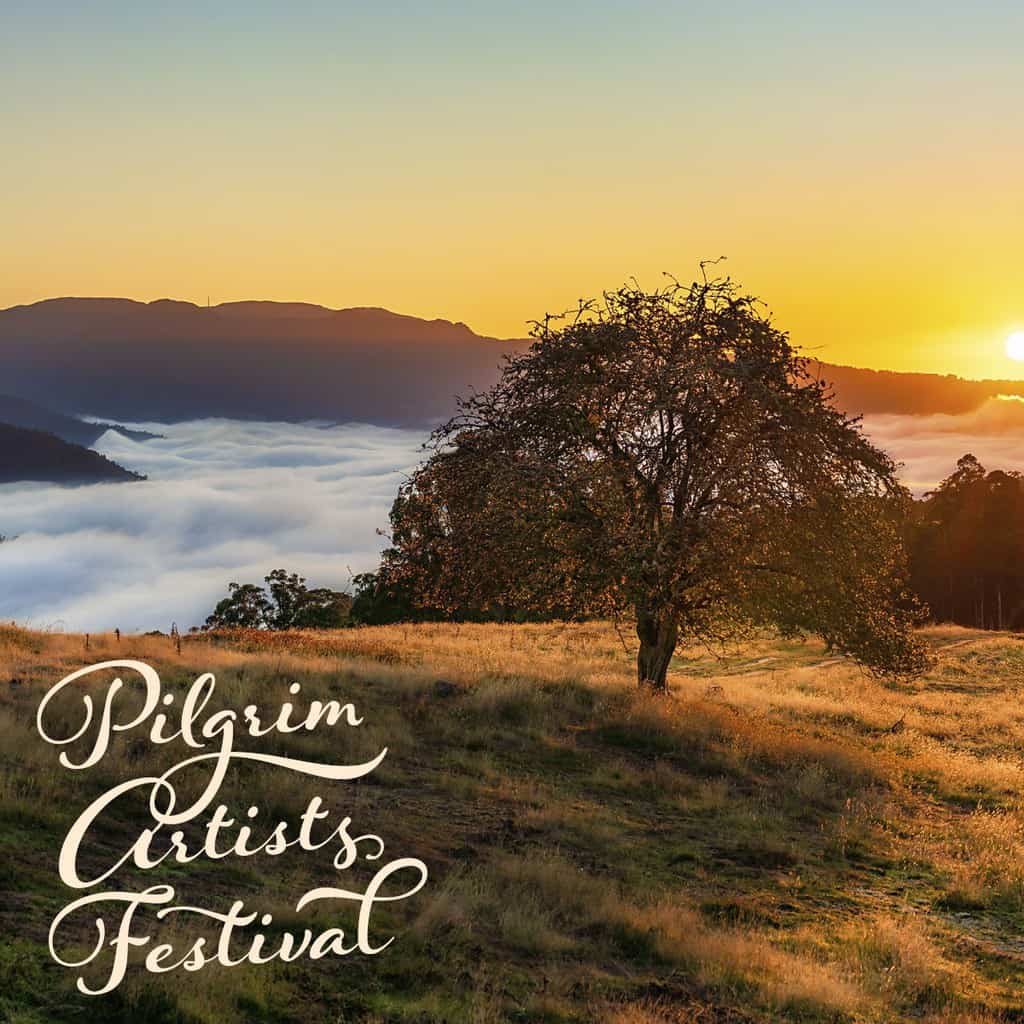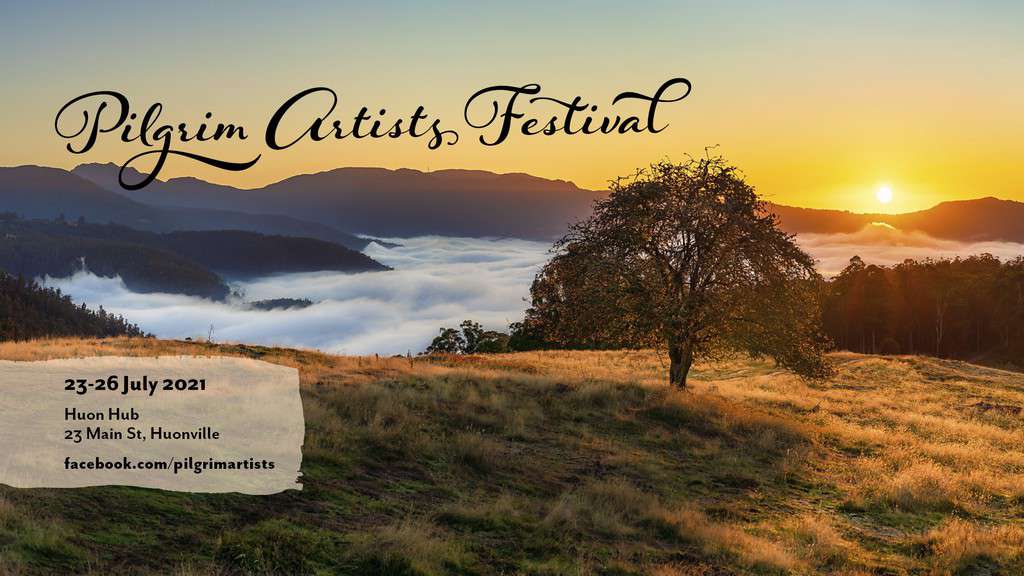Pilgrim Artists Festival - 2021 Literary Finalists
For our 2021 Pilgrim Artists Festival, we've invited literary submissions of fiction, non-fiction, and poetry in three age brackets: adult (18+), teen (13-17), and child (12 and under).
Below you'll find the winners, finalists, and runners up in the Adult age bracket. You can read the youth entries here. And if you'd like to compare with past winners, fell free to visit 2019. (The 2020 festival was cancelled due to the pandemic.)
Writers for this festival had a maximum of 500 words to explore our 2021 theme of The Lord's Prayer. They were encouraged to reflect - from a Christian perspective - on one or more lines from the prayer. Then, all entries were judged anonymously by an independent team of literary curators. That is, the curators had no idea whose work they were evaluating. The curators then chose three finalists from a competitive field in each category at each age level, for you, the public, to vote on in person at the festival.
Adult entrants were eligible for:
-
- In poetry, the $200 Wandering Bookseller Prize for Poetry, and a $100 Wandering Bookseller gift voucher;
-
- In non-fiction, the $200 Soul Tread Prize for Non-Fiction, and an annual Soul Tread membership (valued at $100);
-
- In fiction, the $200 W.R. Gingell Prize for Fiction, and a $100 Wandering Bookseller gift voucher.
Fiction
Adult (18+) Winner
The List
By Emma Wilkins
A few months after he died, in a folder of those confounded lists he always made in the "research phase", she found it.
After: Stratus/strato, Cumulus/cumulo, Cirrus/cirro... (For the novel about a celebrity meteorologist who fabricated forecasts to alter gambling odds.)
After: Annika, Galina, Irina... (For the novel about a Russian aristocrat who was beautiful only when she was angry, so sought infuriating company.)
After: Cotija, Chèvre, Emmental, Taleggio… (An abandoned idea, or a craving for cheese?)
Clears away her mug, pointedly leaves mine.
Generous-with the things she doesn't want.
Always expects something in return.
Happy when her friends are not, unhappy when they are.
Never just forgives-can fume for years...
She dropped the list and stood, breaths quickening, brows clenched. This wasn't research for a novel she had read-or wanted to. But it was, somehow, familiar.
- -
Later, she'd look back and marvel: that the list was news to her; that she'd spent so many years thinking she was good.
She'd always known she'd been sinned against-by strangers, family, friends-but somehow she had never been a sinner; never felt a twinge of guilt.
When she read it, she was shocked, but then she saw. When had she ever given something she wanted to keep? Without expecting gratitude or praise? When had she ever forgiven an offence, or shared another's joy?
She'd always told herself, and everybody else, that she gave up her career to be a mum-but she never could stand being managed. She did it for herself and then bemoaned the great success she would have been; sought payment in their guilt.
She saw this now. She saw this only now.
Anger rose up too. Was a novel underway? Had he planned to change her name, a detail here or there? Just enough to hide the truth from her? Perhaps he planned to watch her read and tut, not knowing she condemned her very self.
She read the list again, again, again. The lines, so short and clinical at first, grew longer and more personal, then flowed. All the years she'd thought that she was generous and kind. All the years she thought herself so good-and wondered why he didn't love her more. All the years he'd watched, and seen, and never said a word. All she hadn't seen, she saw it now.
She, who had loved herself that morning, despised herself that afternoon. So many grudges, so much pride, so little grace, so very little grace.
She couldn't sleep that terrored night. She'd felt regret before but never this. She felt… she felt… Sorry? She whispered, almost prayed: sorry.
Sorry sorry sorry, oh forgive! As I forgive, forgive, as I forgive.
Another thought broke through before the dawn. She padded through the shadows, flicked a switch. Flipped through papers forwards backwards backwards forwards fast then slow, but no. The list she sought was nowhere to be found, had not been made.
He'd catalogued her sins, but not his own.
Adult (18+) Finalists (Fiction)
As in Heaven so on Earth
By Anthony Dekker
PETER: Martin died halfway through the voyage over. We don't know why, although Alice took over Martin's medical duties. Her job was to keep us alive, but by growing plants for us to eat, not by being a doctor. I guess it doesn't really matter exactly why Martin died. We'll miss him - especially Barbara, of course - but our focus has to be on establishing our little colony.
We've got to collect up the housing modules that were pre-delivered, and we've got to start digging. Radiation levels are too high on the Martian surface, so we've got to get those modules underground. I'd counted on Martin's help with that. Barbara is the only other person with engineering training, but her main job is life support. I can give us a place to live, but that's not much use without power or oxygen or heat. Without Martin we've just got to work together more. But we can make it. We've got the skills, we've got the technology, and the plan is still good. I'm quietly confident.
ALICE: I grew a rose today. That should mean something, but it just makes me sad. This great adventure that we are living was supposed to bring us joy. Mission Control says that we are the new pioneers - that we are engaged in the grandest human adventure since my ancestors settled the Pacific in tiny canoes. I've racked up more botanical firsts than anyone since Dioscorides. We've got four thriving crop species, in spite of seven serious plant diseases. Which I solved. But still, I don't feel joy, only hate.
It seems like we took our problems with us on our journey to the heavens. One particular problem, anyway. The two of them do get lost looking for housing modules surprisingly often, when you think about all those nav-orbiters we've got. I guess I'm just the stupid little wife. But my garden has more plants than Mission Control knows about. The magic of chromosomes and proteins is at my fingertips, and it has the power of life and death.
BARBARA: I buried Alice and Peter today. Two of the greatest human beings I've known. Alice may have been one of the greatest scientists of all time. Peter was a magnificent engineer. If there is life after death, perhaps they'll find some happiness. They say that there are no secrets in the grave, so perhaps there can be no distrust there. When Martin and I signed up for this mission, we never expected it to end like this.
Well, I say "end," but I guess I can keep myself alive for a long time yet. Years, perhaps. But what is the point? Mars has one human inhabitant. Does the Universe really care? Is there some kind of plan behind it all? Where is the hope of yesterday? Did I bury that too? All I know is that the stars are shining in a cold and cloudless sky, while Phobos and Deimos are speeding overhead.
Strange the Living
By Suzannah Rowntree
Some time ago, in the City of the Dead, was a man who believed himself to be alive.
The first sign of Matthew Strange's delusion was his arrival upon my doorstep at one o'clock of a stormy November evening: hatless, rumpled and soaked from the rain.
I welcomed him into the hall, where he stood shivering although there was no wind to stir him. "It is so cold!" he said.
Strange had for some time been studying the prospect of resurrection. That evening, having retired as usual to read in his library, he found himself distracted by unfamiliar sensations. He took to the streets, yet his agony only became more intolerable as the evening progressed. At last, happening to pass my house, he sought my counsel.
I saw nothing to suggest that Strange had undergone resurrection. His cheeks were pale and withered, his feet so worm-eaten that he was compelled to use a walking-stick. He therefore explained that he felt. His throat was parched, his bones rattled from cold, and his feet ached. Most alarming of all was a bitter pang originating from no particular source, which he said caused water to stream from what was left of his eyes. I studied his face, but the moisture might well have been the rain.
"Forget these chimerical pains," I told him. "Make up your mind that you are quite dead, and do not spend your days trapped in a delusion."
Strange only sent me a despairing look.
From that date the madness of Matthew Strange only increased. He shut himself into his empty house and hung crepe from the knocker of his door. On the rare occasion anyone saw him, he was clad in deepest mourning.
"You look well preserved," I greeted, upon meeting him in the street one gloomy evening. "I take it you have gotten well again?"
"I am well," he said, with a rather wild laugh. "It seems I am the only one who is."
I decided to humour him. "Why, what do you mean?"
"Just this: that I have found others who claim to be living. But it's all a hoax, my friend. They are as dead as anyone else."
"That seems uncharitable."
"But they do not feel," he said. "Snow falls, and they do not shiver. Fresh dead arrive each day, and their hearts do not break. They cannot smell their own corruption. They are dead, or next to it."
"Naturally; but why spend your days in seclusion? One cannot always be mourning."
"A dead thing cannot weep at all," he said. "But I live, and therefore I mourn them."
Strange's words disturbed me, for as I hurried away, I began to understand them. Surely the thought of death had once been terrible to me! Was it not dreadful to be infested with worms and bloated with stinking gases? Perhaps Strange was right to mourn! Perhaps there was something wrong-unnatural, even-about this city! -The sensation was intolerable. I was glad when it passed.
Adult (18+) Runners Up (Fiction)
Forgive Us This Day
Our Daily Bread
By Peirce Baehr
Julia was crouched on the floor, tossing bread rolls into a basket, "Don't tell Mitch I dropped them."
"Too late," I said.
Julia looked up, "Where's Ben?"
"Sick. It's just me. Chuck the rolls. No one eats them."
"You should try one, they're good."
"I'm off gluten."
"You hear they sacked Hélène?" she set the basket on the cart, near the coffee carafes, attempting nonchalance, but so obviously eager to chat. Morning people make me sick.
"Who?" I'd clocked in late. But it was still 6:00 - A-freaking-M. Too early for conversation. Even if I had clue who Hélène was. I pictured a miserable francophone first-year, hired and immediately turfed for sneezing into a soup tureen.
"You know, Soto-Bollinger? Pure Foods Organics."
"Oh." The Hélène - the legend. That woke me.
We wheeled the cart to the smaller Mackenzie conference room. It was rounds today - the ten-seaters. But only three of them. Someone liked to be cozy. Probably the theatre department. Whatever. Easier on us.
"She built that company herself, you know. Rags to riches. She's only 47." Julia has delusions of grandeur. Rambles often about people achieving their dreams.
"I know." I had to speak louder, we were setting opposite sides of the room. "The only magazine we got growing up was 'Eat + Live'. I know way too much about Hélène Soto-Bollinger. Quiz me, eh?"
"Ok. What does she keep in the garage of her Cape Breton bungalow?"
"Her car?" That's all I had. It got an eye-roll.
"Also, truckloads of forbidden food. Some underpaid cleaner just posted an absurd number of photos online: microwave pizzas, pop, bread, you name it. Even worse, they got shots of her eating the junk."
"You lie!" At that moment, I could have been a meme. And no joke, it would have gone viral. "That's sick!" Like, gross sick. Why would you put that stuff in your body.
Julia sighed, "Seriously. It's all over YouTube, Twitter, TikTok. They're calling her Hélène the Hypocrite. Not very original…. She doesn't deserve it, she's worked so hard. She should have paid the cleaner more. At least she can start over…"
I left Julia to her ramblings and ducked out. Officially, I was off to the catering room for a stack of napkins. Unofficially, I was shook. She was supposed to be one of the good ones. What a schemer. To build an empire on pure food, and play everyone like that. This world is messed.
When I got back, Julia was munching a bread roll and flicking through her phone.
"They should fire you."
"They won't. Check this out."
I leaned over to look at the screen. Julia was swiping fast, but not fast enough for me to miss it. There Hélène was, eating every unhealthy thing.
Julia absentmindedly passed me the bread basket. Don't blame me, ok? I'd missed breakfast, it was early, and I was weak. I took one and, heaven help me, I ate it.
The Orphan and the Soldier
By Jacob Kewley
I noticed the hamster hiding in the litter of the empty bus shelter during my fourth hour on the bench. It took another forty minutes to coax it up beside me, nibbling on stale crackers from my pocket.
A noise made me glance up and I saw her, damp hair glistening as she came through the rain toward us. The hamster shot into my blanket.
The woman slung the bag from her shoulder and sat beside me.
I stared, observing the heavy boots and the military jacket. She grinned. "Hey kid."
I swallowed casually. "Got the time?"
"11:50." She glanced sideways. "Waiting for the bus?"
"Yes."
Her gaze flicked to the grotty blanket. "Where you off to tonight?"
She observed my wince and narrowed her eyes after a long moment. "It doesn't make sense for you to be here." Her gaze turned to my backpack. "You walked?"
I burrowed my swollen feet deeper under the blanket.
She reached out slowly and laid her hand on my knee. A knot rose in my throat, and I choked on it, eyes watering in the evening chill.
I realised afterward she was about to speak - that small sound one makes as they open their mouth. But words of my own had started to tumble out and could not be stopped.
"I'm like those rusted-out bikes. Just laying about on folks' lawns with the training wheels still on."
I glared at the muddy floor.
"Why can't there be a place for things that nobody wants anymore. They couldn't be bothered returning me, just happy to leave me out in the rain."
I glanced up into expressionless eyes.
"Why can't I forget and move on."
Her expression turned sad. "You say forget, but you mean forgive. Some things you can't forget. But you shouldn't always forgive either. You should hold onto it when it's really bad… and… hate. You can be a bit stronger with enough hate."
The lights from the midnight bus cut through the rain. Shifting decisively, the woman reached into her pocket. She handed me twenty-five dollars and roughly tore a tattered poster from the wall. She scrawled something on it and shoved it toward me.
"This is a shelter back in Charlottesville," she said. "The 6am departure will get you there." She paused as the bus pulled in beside us. "Good luck kid."
She walked away.
I eyed the address in the retreating light. Six hours. Turning the sheet in my hands thoughtfully, I was distracted by neat handwriting on the reverse.
It seemed to be a poetry fragment, cut short by the tear.
"Give us this day…
And forgive us…"
I stared at it for a moment, my eyes narrowed, then balling the paper up, threw it from me.
At that moment, the moon peaked from behind the clouds and bathed me in its gentle light. It was bright, but cold and so far away.
I turned back to my blanket. The hamster was gone.
Non-Fiction
Adult (18+) Winner
Conditional Sentence
By Jacqueline Law
My relationship with my father had seemed to be made of spider-silk: thin, barely visible at times, but as strong as anything on earth. Both tense and tensile, the relationship held together, by what? His unwavering belief that it would? I'll admit, I doubted. Often. Even at the end. Especially then. But his dying-and his death-proved that our relationship had been as true as anything in heaven itself.
'The doctor said there is nothing more she can do for him. She's referring him to palliative care.' My mother's fear crackled down the phone. I was parked two hundred metres from the hospital where, in any given week, I worked and served patients on the oncology/palliative care ward. I spoke carefully, tenderly, as I would with any patient's family. I hadn't yet absorbed the news as a family member myself.
From fifteen hundred kilometres away, I 'watched' as Dad pursued an extension of life through research clinical trials, only to be excluded at the last hurdle. Then, as he sought a second opinion consultation that kept his feet in the world of active treatment and his head in the clouds of hope. I was angry. Why are you doing this? Why do you want to waste your last remaining months in doctor's surgeries? Why won't you prioritise spending time with the people who love you? Why won't you ever show me how to live, or how to die?
I visited. Twice, by myself. This man, who had refused a written correspondence between us-preferring to create a dot-point list of the salient memories of his life (I used none of it in my eulogy)-allowed me a seated audience of one hour. There, I asked what I thought was my burning question; his answer was but a puff of smoke. I almost laughed. All my needing-to-know, all my angry demands suddenly appeared meaningless. What could he say to me now that would make up for forty-three years of love at arm's-length? What could he say to me that would make any difference at all? In that moment, I remember, I chose to cancel the debt.
I'd been seeking forgiveness. A solid evangelical, I thought if I just meditated enough on God's great act of forgiveness towards me, that would help me to find the grace to forgive my father and some peace in his passing. It didn't. This was a flesh and blood relationship, full of sin and beauty, and somehow it required me to forgive my earthly father when he had sinned against me for me to know or even ask for my heavenly Father's forgiveness.
The night he died, I lay on my back in bed, looking beyond this world, and there came a vision of the triune God: spun together in spirit-silk, gloriously complete in Godself, rapturously in love, yet holding out a warm and sincere hand of welcome. I had no idea whether my father accepted God's hand, but I knew that I would.
Adult (18+) Finalists (Non-fiction)
Restored
By Caitlin Clase
"And the light shineth in darkness; and the darkness comprehended it not."
Of all the wondrous, luminous words in this word, those are some of my favorite, and they were the ones that came to mind as I stood upon the tallest driveway in our alley with my brother, tiptoe, as we tried to catch the last swiftly fading gold of the sunset, watching as it seemed to tangle and tear in the grim, somber branches reaching up their arms from the horizon.
Robert Frost once claimed that "nothing gold can stay", and I suppose he's right in a way. Here, in this shadow gripped world of ours, the years will continue their inexorably onward march, changing the face of a world we once knew into that of a stranger. We must look around ourselves and know that we fight a battle which Tolkien called "the long defeat", where even the highest joys must change, fade, and blink out; a battle where every fulfilled hope is but a sharp, brief flash in the vast dark.
But then, he cannot be entirely right-not in the long run. Not if the dark hasn't comprehended that golden light. If the light which was the life of men is still shining, bright and keen, then perhaps those good things which have their source in that life aren't lost at all. Perhaps nothing good is ever truly lost and Time, that greatest of pickpockets, will one day be brought to accord and called upon to right his wrongs and return the wealth he has stolen. All things, not just made new, but re-newed. Re-stored to their rightful place.
Which brings to mind another handful of favorite words, beloved in part for their insistence that nothing will be forgotten-something which greatly worried me as a girl when I heard people speaking of Heaven and the Kingdom of God as if it were the land of forgetfulness, a place where none of the world's sorrows seemed to matter anymore and redemption was no longer needed : "I will restore to you the years that the swarming locust has eaten."
Bold words, those.
And they sound (dare we hope?) rather like somehow, someway, the spirit of all the good, golden pieces of this world that have slipped away down drains and been dropped and lost in back alleys are being retrieved and gathered up somewhere into a bright, glimmering heap….
My Daily Bread
By Anthony Dekker
I get my daily bread down the road at Coles. As I fight the robot checkout machinery, it doesn't seem like a gift, but a gift it is. In fact, that humble loaf represents the pinnacle of an entire mountain of gifts.
Thousands of years ago, the Land between the Rivers - Mesopotamia - was gifted with einkorn, a form of grass which had seeds that were high in protein. That's a pretty good deal - unless you are so unfortunate as to suffer from coeliac disease - because protein is essential for life. It builds our bodies. On the other side of the planet, Native Americans needed a mix of corn, beans, and squash to get the same effect. On days when I eat Mexican food, I'm grateful for that gift as well, but growing three plants is harder than growing one. And wheat is indeed fairly easy to grow, harvest, and mill, thanks to some plant breeders of the very distant past. Those forgotten plant breeders gifted us with emmer, spelt, durum, and plain old wheat.
Beer is another great gift (along with bacon, barramundi, and blackberries). Beer goes back almost as far as bread does, and eventually beer and bread learned to waltz together - bread is sweeter when it's made with brewer's yeast rather than with sourdough leaven. When brewers started making lager, which requires a different kind of yeast from ale, the bakers of Vienna learned to grow the yeast they needed without help from brewers (thank you, gentlemen). In the year that "The Blue Danube" was first performed, these bakers presented the world with a dazzling variety of breads and cakes made with the new yeast. Napoleon III, Alexandre Dumas, and millions of visitors to the Exposition Universelle in Paris munched on delicious Viennese rolls while goggling at Japanese prints, elaborate clocks, and Egyptian monuments.
Before the century was out, a canny Scotsman had added the invention of the electric toaster (thank you, Alan). The perfect slice of bread could now be browned to the perfect level of doneness. And without burning one's fingers.
But all that technology is of limited value if there is no bread, and there will be no bread if the wheat doesn't grow. The Good Book tells us that God gives the rains and brings the "appointed weeks of the harvest." When we get good rain, Australia produces 4% of the world's wheat. In a dry year, that number is closer to 1%. So let us pray for rain on the wheatfields and power for the bakery ovens. And let us pray for the dairy farmers as well, because I do like some butter on my morning slice of toast.
Adult (18+) Runner Up (Non-fiction)
Give Us This Day Our Daily Bread
(A Portrait of a Woman Ablaze)
By Sarah Downes
I knock on the glass door and ease in quickly, mindful for the many animals inside who love nothing more then to dive through your legs when least expected. A well fed tabby makes a last minute attempt to dart outside, but I pounce on him and place him, disgruntled, back on a sheepskin covered chair by the fire. She laughs and shows me the scratches all up her arm from where he attacked her this morning in one of his more robust play sessions. Elbow deep in some disgusting concoction of chicken hearts and boiled vegetables, she's busy preparing home cooked meals for the furry children still here, and they coil, purring, against her legs. A rough portrait of two dogs hangs over the fire. They're out of proportion and executed by a novice hand, yet even the poorest artist could not have failed to capture the contentment upon their faces.
She's shy - so shy - and yet once her hands are washed and the individual little bags tied up and stowed away in the fridge, it's often hard for me to interject amongst the many things that she's brimming to impart. Who could blame her? Cats love you and cuddle you at night when the insomnia means you can't sleep, they bring you mice unexpectedly and leave them tucked in inconspicuous corners for your nose to find later, but they can't converse about knitting patterns, kitchen renovations, modern medicine or Bitcoin. Two small silver lions bob and sway in her ears as she slowly rocks back and forth. The pain is worse when she sits still, she once said. It can't stop her mind though - it just traps it right here with me, and sometimes I am selfish in how much I enjoy our reclusive time together.
We don't know yet if the baby inside me is a boy or girl, so she picked out two different shades of wool. 'Clover Green' arrived weeks ago but 'Blushing Rose' only came today, and we marvel over how we both don't like pink, generally, and yet this colour is just perfect, and not at all barbie-hued. "Too pretty not to be used soon", we laugh. One of her hands - I never can remember if it's the left or the right - is shaking badly as she places the wool away and I know that it's nearly time for me to leave.
Before I can stand and begin to ease my way to the door, a process that often takes many minutes as we both struggle to halt conversation, she points to a sticky mound of rising dough on the counter. "I've made scrolls! I've made them so many times that thankfully they're one of the few things I can make when I get bad like this. I'll send some over once they're done." And I accept, and I pray for the day when her strength is such that she can make a tower of profiteroles as her daily bread.
Poetry
Adult (18+) Finalists
Healed
By Krista Wagner
Adult (18+) Finalists (Poetry)
Fiat Voluntas Tua
By Anthony Dekker
Thy will be done. As angels do Thy will,
Let men also, and keep Thy good decrees;
Learn from Thy Book how not Thee to displease;
Do always good, and turn their face from ill.
So let men do; let me my sins retain.
They are but small and hardly even wrong.
For sainthood now, I am too little strong.
Surely Thy will is not to cause me pain?
But Thy will shall be done, Thy people pure
Will be. Thy plan works on; reveals Thy might.
No sparrow falls if Thou say'st not "Cease flight."
Unknown to us, the outcome still is sure.
Thy will be done. With angels we shall be,
And always do Thy will, eternally.
The Reverend John Lothropp
Restores Jerusalem
By Stephen Isham
An ember from the flickering lamp
falls on John Lothropp's Bible
open to the Acts of the Apostles
obliterating
the journey of James to Jerusalem
abolishing half the city there --
in fact burning away most of verse thirteen
chapter thirteen
in the annotated 1605 English Bible
which the Reverend John afterward restored
applying a neatly trimmed
precisely pasted oval of precious paper
garnered from who knows where
and with his quill dipped in dark ink
to imitate the tufted printer's font
along with the f-like 's' in Jerusalem
on the mid Atlantic 1635 voyage of the Griffin
among the shifting boxes and barrels
below deck, the dark
illuminated by a sputtering lantern that
swayed overhead as the sea swelled
source of the impish ember
that fell to burn away
the journey of James to Jerusalem
and Paul to Pamphylia -- sat there reading
at that moment of fiery destruction -
the Reverend John mindfully
having set sail one and a half millennia
in the wake of James bound for Jerusalem
and like Paul abroad on
somewhat similar sail driven ships
came John Lothropp, to minister the Word
in a distant land.
Did John, inking the missing five letters, see
a parable of Jerusalem restored
a burning bush moment emanating the very voice of God?
Perhaps by Puritan persuasion he anticipated
a New England Jerusalem like
Governor Winthop's City on a Hill?
Or rather by hint of his own ink
was he pointed beyond immediate prospects
to the City of Light whose river flowed
sweet among the healing trees
in the wake of the Day of the Lord?
That glorious city saluted
in the final pages of his
1605 English Bible.
Adult (18+) Runners Up (Poetry)
She Runs
By Esther Fan
Soles pounding the pavement,
Crowds pumping their fists,
Drowned by the sound of her breath,
Drowned by the sound of her thoughts.
They're all behind me, she notes,
There's no-one - and perhaps nothing - ahead.
But that's the problem, she says,
They're all behind me:
These burdens -
On her heels, on her back, on her mind -
Eternally chasing
Pounding her soul.
And so she runs.
She must run.
Disguised, in the dark of dawn
is when she usually trains.
Far from comfort, the race-day sun
is cold and crushing.
The air is clear, her mind is not.
The pain in her body not clouding
the pain of the past.
Forgive me my debts, she mutters
Though no one hears -
they just cheer.
She's certain of a win,
Not certain if victory buys absolution.
She fears it won't, but
as the only penance she knows:
She runs.
And as she runs
He climbs
He climbs not to the sound of cheers,
but jeers. Yet
he hears only cries.
He hears her cry.
The weight of the wood not heavier than
the weight of the world.
Father forgive them, he mutters.
She crosses the line.
At the cross, it is finished.
Darkness invades daylight.
In the dark once again
She rises.
Not knowing he climbed
She still runs
Give Us Today
By Jacqueline Law
Fresh little lips like fingers find
food in abundance, instinctual mind:
food is life, is love, is trust
when thanks is formless, praise is dust.
Purposing hand darts out to take
whatever you're eating, carrot or cake:
yours is mine, and mine is mine
when through me alone the sun shall shine.
"Didi!" the cry from a learning tongue
sounds with meaning for the young
and old rewards again again
"More dinner!" it will be when
Wonder-filled eyes watch day by day
tiny green shoots emerge from clay:
What ordinary miracle, photosynthesis!
Food from the earth. Who made all this?
Lunch bell rings just as hunger sets in
Humble sandwich enough for the win.
Notice the child who runs quickly away.
Lord, teach me to pray: "Give us today…"
Special Thanks
We are so very grateful to Soul Tread, The Wandering Bookseller and W.R. Gingell for sponsoring our adult literary prizes.
All works on this page are copyright their original authors. The Pilgrim Hill Association Inc has been granted a permanent but non-exclusive right to publish these works. We hope you enjoy them.








